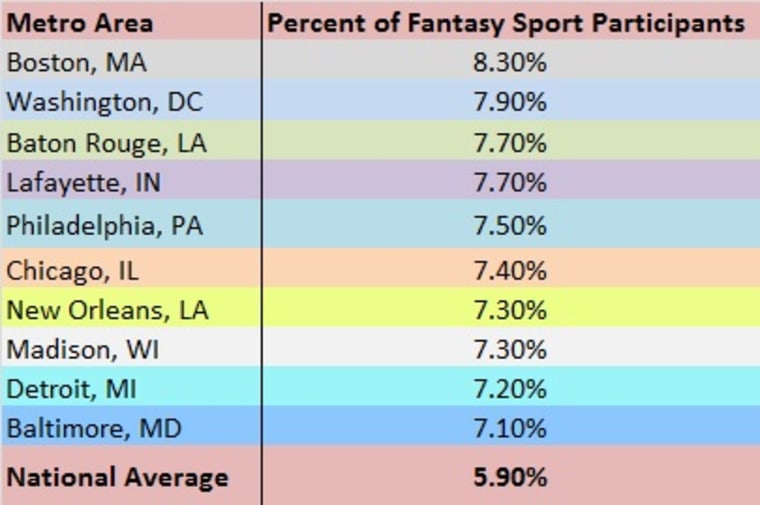Over the past decade fantasy sports have grown from a way for fans to engage with athletes and teams throughout long seasons, to a multi-billion dollar industry.
But as Washington turns its attention to the games after an alleged insider trading scandal and the college and NFL football playoffs near, keep in mind that not everyone is equally invested in fantasy sports games and some very influential voter groups are heavily involved.
The Fantasy Sports Trade Association estimates that 57 million people in the United States and Canada play fantasy sports in some way — and those players tend to skew to a particular demographic profile, according to Experian Marketing Services. They are, for the most part, young. They earn high incomes. They are well educated. And, as you might expect, they are overwhelmingly male.

They also tend to be property owners, about 70% own their homes, just above the national average.
In other words, in many ways fantasy sports participants are a key voting bloc group that politicians care a great deal about: Young, educated men with money.
In addition, they tend to be clustered in big, densely-populated, voter-filled metro areas such as Boston, Washington D.C., Philadelphia and Chicago. That is, people in those metro areas are more likely to be fantasy sports participants than people in other places.

To be clear, these numbers do not break out people who participate in daily sports fantasy games, which have exploded in popularity in the last few years — and which have inspired the attention from Washington, including calls for congressional hearings. That group of fantasy sports enthusiasts may look different.
One thing that is clear, however, is this is the time of year when a fantasy sports scandal/investigation is likely to get extra attention. There are fantasy leagues for many sports, but football season drives the bus. Data from Experian shows there were about 80 weekly million visits to fantasy sports sites last October. In May, after the start of baseball season, that number was about 26 million. But the second week of this October, the figure was back up to 104 million.
And as stories circulate and the headlines grow, the larger affected audience is big, well-off and well-educated. They are the kind of people who pay attention to the news and they are the kind of people that politicians notice.
Meanwhile, New Jersey Gov. Chris Christie, a Republican presidential candidate, during a recent debate dismissed the idea that the government should pay any extra attention to the games.
"They shouldn't regulate fantasy football," Christie said. "It's a stupid idea."
Editor's note: NBC News' parent company, Comcast Corp., and NBC Sports are among the investors in FanDuel.